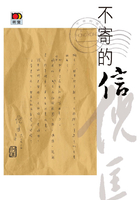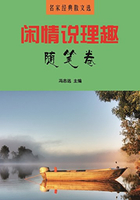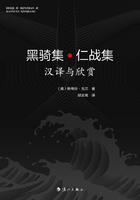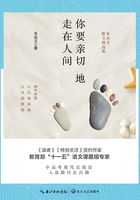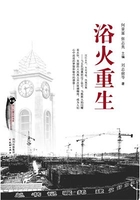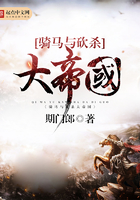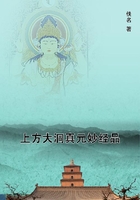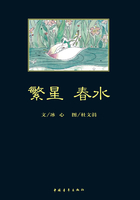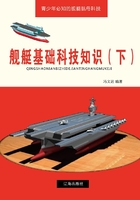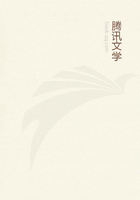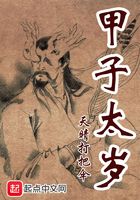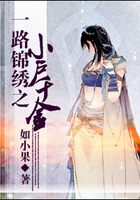Structure of the Book
The book is a study of Vonnegut's tendency for ecological humanism through decoding the animal images in his fction。 Details from The Sirens of Titan, Slaughterhouse-Five, Breakfast of Champions, Slapstick, Hocus Pocus, and Galapagos are scrutinized in light of theories and concepts of animal studies。Some novels are examined more than once, from different perspectives。By foregrounding the animal characters in his novels, I wish to throw light to some neglected aspects of Vonnegut's thinking, such as his ecological concerns, his affection for animals, and the impetus to blur and destabilize established boundaries in both the human society and the ecological community。In so doing, I hope, a fuller understanding of Vonnegut's humanism can be achieved。
The main body of the book consists of five parts, moving from the personal to the textual, from critique to prospects。 In the first chapter, a detailed“ecological biography”of Vonnegut is presented。Instances of his life and experiences in relation to nature, animals, and the environmental movement are recounted, with a brief introduction to the American modern environmental movement as the social context, which almost concurred with Vonnegut's rise and growth to reputation。The influences from his family and professors on Vonnegut's understanding of the human-animal relationship are also investigated。The goal of this chapter is to discover how Vonnegut grew into a writer of strong ecological sensibility and the correlation between his writing and the ecological movement。
In Chapter Two, the study is concentrated on one aspect of Vonnegut's treatment of the human-animal relationship:meat eating。 This is examined as a case of Vonnegut's critique of humanity's inhumanity。In Breakfast of Champions, Hocus Pocus, and Galapagos, there is a common motif of killing and eating of animals for food。Drawing heavily on contemporary reports and discussions of the condition of animal lives, particularly thoseof farm animals, I argue that the three novels can be taken as Vonnegut's participation in the contemporary debate over the moral standing of animals。In the drawings of hamburgers and fried chickens in Breakfast of Champions, the disapproving account of the raising of veal calves in Hocus Pocus, and the depiction of the shameless carnage of island animals in Galapagos, we see Vonnegut grow sadder and sadder, angrier and angrier for the inhumanity humans inflict upon the nonhuman animals, only for the satisfaction of the palate。On the symbolic level, similar inhumanity is also wreaked to humans, such as the experience of Harkte in Hocus Pocus, whose fate is put in implied ****ogy with that of the lobsters boiled alive。The critique of meat-eating then bears out the general condition of humanity and severely attacks the classic notion of humanity as civilized, autonomous, and superior being to the beasts。
Chapter Three investigates the role of animal pets in Vonnegut's fictional world。 Three novels are under discussion:The Sirens of Titan, Breakfast of Champions, and Slapstick。In the first two novels, a pet is assigned to each of the leading characters:a big Mastiff to Winston Niles Rumfoord, a tailless Labrador retriever to Dwayne Hoover, and a parakeet to Kilgore Trout。Although there is no pet for Wilbur Daffodil-ⅡSwain, the narrator-protagonist of Slapstick, the Prologue of the novel contains repeated deions of the author’s intimate affection for his dogs, strongly foreshadowing themes of intimacy of the novel。All this exemplifies Vonnegut’s emphasis of the human dependence on animal companionship, which, in effect, reflects the spiritual void and utter loneliness of the postmodern human。Three types of relationship are illustrated through the ****ysis of the pet-human relationship:wife and husband, father and son, and brother and sister。
A key issue in animal studies is the breakdown of species barriers。 We can see this impulse in Vonnegut's writing, too。Slaughterhouse-Five is such a novel。In Chapter Four, I concentrate on this masterpiece for a closeinvestigation of Vonnegut's critique of speciesism。Two prominent images are put under scrutiny:the slaughterhouse and the zoo。Scholars have long taken for granted the images'metaphorical and symbolical meanings, but they ignore their literal signification, as places where animals are slaughtered or exhibited, both of which are real in the novel。While Vonnegut seems to have quietly replaced the animals that are supposed to be in the slaughterhouse and the zoo with human beings, he does not erase the animal signifeds。We see the carcasses of slaughtered animals in the meat locker where Billy survives the frebombing of Dresden, a literal slaughtering of humans。We see, too, in the Tralfamadore zoo how Billy is regarded as *****ien species, just in the same way as we regard zoo animals as alien species。In a sense, Billy Pilgrim is twice“animalized”in the novel。The deion of both experiences shows Vonnegut's skepticism about the human supremacy and his critique of the human cruelty and irreverence in the treatment of the animals。
A great number of other images are also found implicative of ****ogy between humans and other animals, such as the prisoner car described in allusion to the cattle car, the pain in the feet that both Roland Weary and the cart-pulling horses suffer from, the maniac torture of a dog by a sadist killer suspect of carrying rabies, etc。 Together with the juxtaposition of Billy's war experiences with his illusory travel to the Tralfamadore, I contend, these ****ogies expose the irrational nature of human existence and the shared helplessness of humans and animals in face of war and oppression。In this way, Vonnegut defates the human hubris as the“paragon of animals”and reveals the fragility and porosity of the“insuperable line”between humans and animals。With the creation of an extraterrestrial planet, hence an interplanetary perspective, he recommends a humbled species identity for humans—as the“Earthlings”。In this sense, Vonnegut is a pioneering thinker who views humans as planetary citizens。
Chapter Five shows glimmers of hope in the bleak world of Vonnegut'sfiction。 In The Sirens of Titan and Galapagos, Vonnegut presents us a prospect of ecological integrity, by means of homecoming—return to the animal kingdom。
The notion of“homecoming”and the image of“animal kingdom”in this chapter are used both symbolically and realistically。 They refer to Vonnegut's vision of the human future as a species, surviving by reestablishing their biological kinship with other species and emancipating themselves from the oppressive control of the human brain, the symbol of rationalism。The animal kingdom is not the animal world in the popular concept where the association of the jungle law is easily evoked, which in effect is stereotypical, a misunderstanding of the Darwinian theories of competition and survival, for there is actually more harmony and symbiosis than fierce battle for victory。The animal kingdom in Vonnegut's animal politics is an image of paradise, an ideal community of ecological integration where every species live in peace and harmony with others as well as with themselves, a realization of Vonnegut's ideal of“karass”and the extended family, not by taming other species, as in classic pastorals, but by animalizing humans。
In both The Sirens of Titan and Galapagos, human characters undergo a literalized process of“becoming animals”。 Boaz and Chrono choose to live with the harmonium and bluebirds respectively in The Sirens of Titan, while in Galapagos, after a million years evolution, humans eventually do away with the manipulating big brain and become joyous amphibians。While acknowledging their black humorist suggestions of human absurdity, I argue that the plots are realistically meaningful for human's returning to the ecological community and the redefnition of the human identity in the universe。This is indeed integral part of Vonnegut's humanistic philosophy。In the choice of animalizing themselves and restoring their fellowship with other animals, human beings finally achieve the ecological and spiritual integrity that consists in peace, contentment, and harmony with themselves as well as their environment。It is homecoming for the humankind after their long self-exile。
In the Conclusion, I link up Vonnegut's animal representation and his humanistic thinking, arguing that Vonnegut's humanism is a new kind of humanism, with a strong indication for the ecological spiritual integrity of the human beings and their ecological obligation for the natural environment and the nonhuman animals。 I also point out, though, that Vonnegut is not yet a conscious animal-right writer。Much of his concern for the animals belongs to his profound humanistic compassion for the weak and the unlucky。Given the marginal status of most animals in his works and their primarily metaphorical function for messages about humanity, we can see Vonnegut's understanding of the necessity for an animal ethic is still in inception。Therefore, the title of my book is“toward ecological humanism”。

